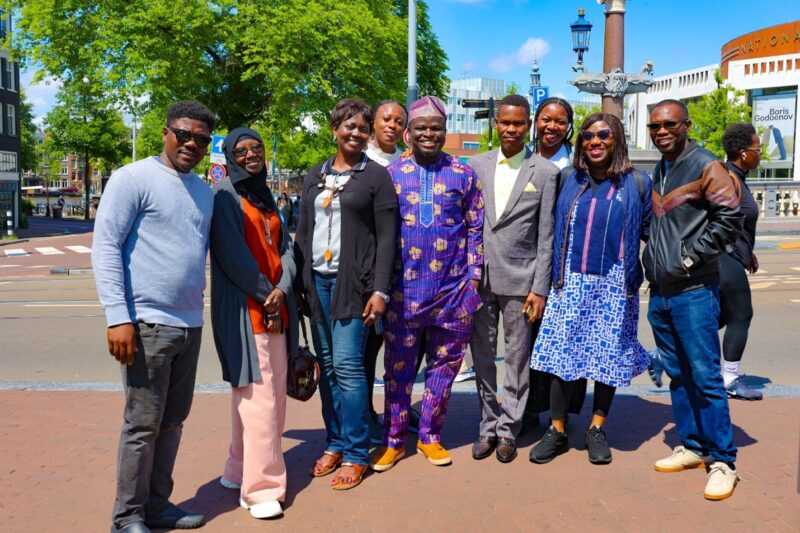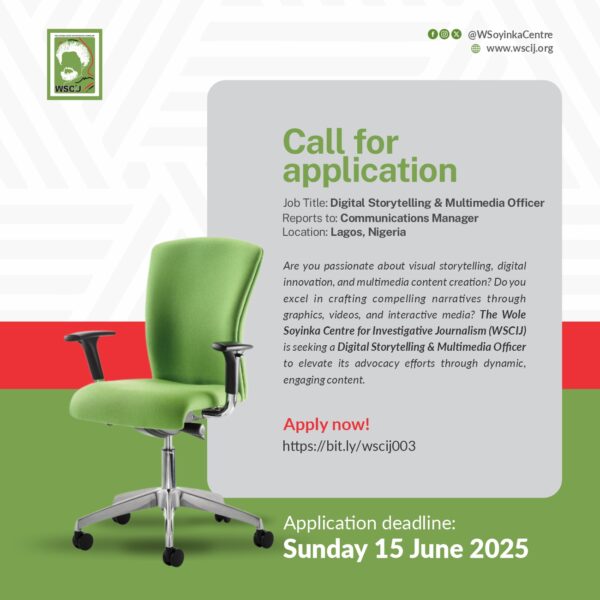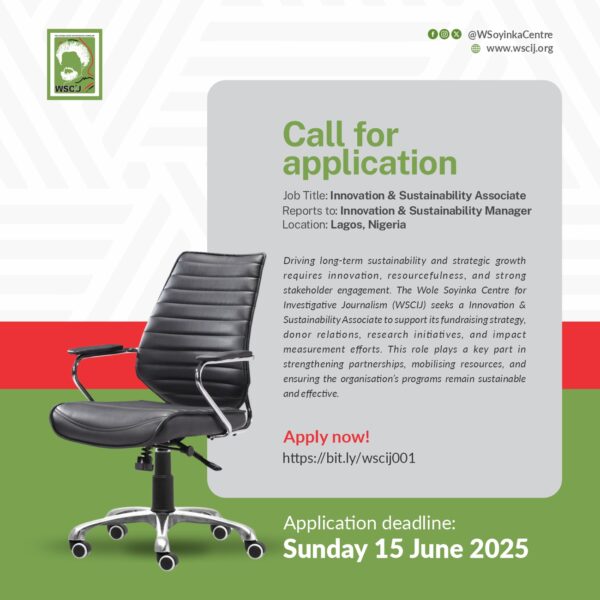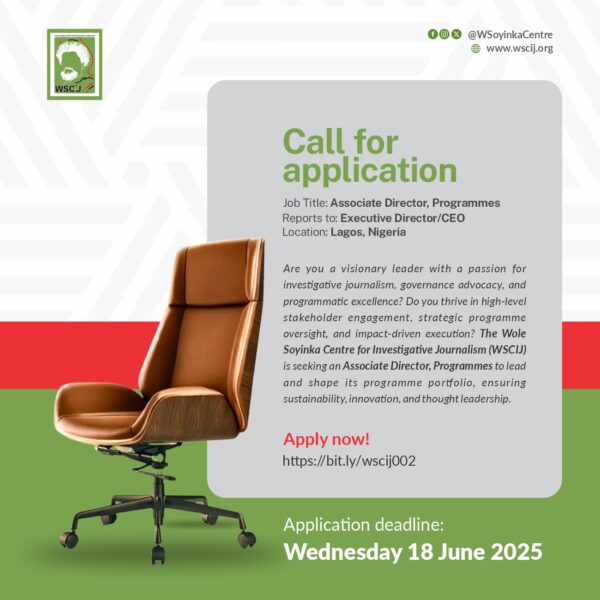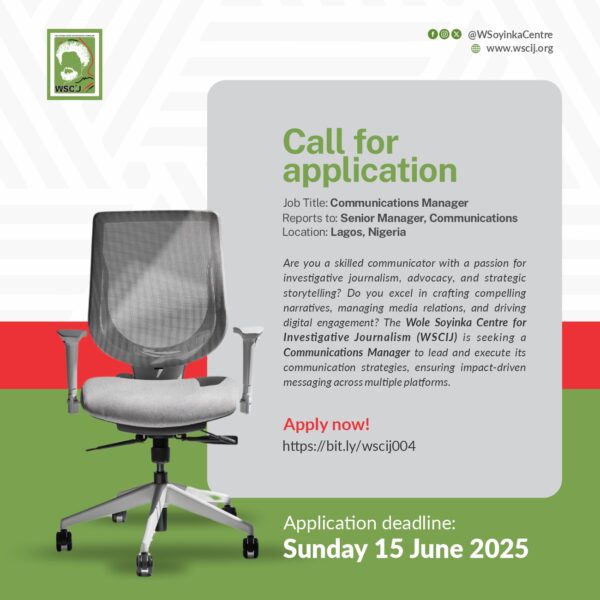Leaders of civil society organisations and media editors were united on the need to increase and improve the reportage of girls and women rights as human rights in Nigeria as they gathered on Thursday 7 August, 2014 in Lagos for the Report Women! stakeholders’ inception meeting organised by the Wole Soyinka Centre for Investigative Journalism and the Royal Netherlands Embassy.
The Stakeholders’ round table was part of activities for the Report Women! project which started with the monitoring of seven Nigerian newspapers in May 2014. The round table held to review the perspective of civil society and media practitioners on the status of media coverage of girls and women as well and chart a way forward towards mainstreaming their rights into news reporting.
In her welcome remarks, WSCIJ Coordinator, Motunrayo Alaka spoke to the purpose of the stakeholders’ meeting saying the Centre thought it necessary to seek the input of non- governmental and media organisations who have been working on girls and women issues at the inception of the project in a bid to bring all on board as partners. According to her, the meeting is an acknowledgement of past contributions to the promotion of girls and women’s issues as well as the Centre’s strategy to avoid repeating unnecessary mistakes on the project by learning from forerunners.
Senior Economic Officer with the Netherlands Embassy, Mr. Taco Westerhuis gave the goodwill message. He highlighted the embassy’s commitment to girls and women’s issues, stating that it focuses on the rights of women and encourages justice and fairness. Mr Westerhuis who said that the embassy is proud to be associated with the Wole Soyinka Centre for Investigative Journalism on the project also emphasised that the civil society plays a vital role in contributing to it success.
Mrs Ifeyinwa Omowole, President of the National Association of Women Journalists (NAWOJ), represented by Ms. Dupe Olaoye-Osinkolu the association’s chairperson for the Lagos chapter, spoke on the importance of increasing reportage of girls and women in the Nigerian media. Ms Olaoye-Osinkolu posed the question, ‘can anyone imagine a world without women and girls?’ She envisioned a time when women will have access to a level playing field where there is no antagonism towards reportage of women issues and how much space is dedicated to women related stories.
Next, a panel discussing Media’s commitment to reporting women – Insider/Outsiders’ perspective consisting Mr. Musikilu Mojeed of Premium Times, Ms. Amy Oyekunle of Kudirat Initiative for Democracy (KIND), Dr. Abiola Afolabi-Akiyode of Women Advocacy, Research and Documentation Centre (WARDC), represented by Ms. Emmanuella Azu, Ms. Stella Sawyerr of Tell Magazine, and Ms. Joke Kujenya of The Nation Newspapers held. The panel concluded that women and girls lack adequate reportage due to many reasons including constrains in media management, the lack of understanding of media operations by many women and stereotypes both in the newsrooms and in the society.
Dr. Chidi Odinkalu, represented by Ms. Cynthia Mbamalu, speaking on ‘The media and the human rights status of girls and women’ said that the lapses in the Nigerian system enable abuse, inequality and injustice, especially of girls and women. According to the presentation, the culture of silence that is present in Nigeria helps abuse to thrive; and injustice that is left unaddressed will continue to cause harm hence the need for the civil society, media and government agencies to stand up against human rights abuse of any colouration.
After this, Programme Officer with the WSCIJ, Toyin Akinniyi, and the Coordinator, Motunrayo Alaka presented highlights of the Centre’s one-month monitoring of seven Nigerian print media’s reportage of girls and women which showed that most national newspapers understand the need to mainstream girls and women but have to do a lot more deliberate reporting away from the weekend ‘soft’ stories dedicated to women.
The second panel session fielded Ms. Kadaria Ahmed of Reinvent Media and Mrs. Doris Yaro of the Gabasawa Women and Children Empowerment Initiative, Borno discussing the topic, ‘Girls and Women, what is worth reporting?’ Here, Ms Ahmed opined that it is important to mainstream gender issues as human rights issues. According to her, the way to achieve this is to get more women into management positions in newsrooms. Mrs Doris Yaro on her part spoke on rape and allied abuse victims in northern Nigeria, stating that a lot more than the media is reporting is happening in the north. She called on the government, media and civil society organisations to give girls and women a new lease of life without breaching the high level of confidentiality required for such issues.
The break-out session where participants contributed to activities listed for the Report Women! project followed.
The meeting closed with a word from the Founder of Wole Soyinka Centre for Investigative Reporting, Mr. Dapo Olorunyomi who moderated the meeting. He spoke to the need for the media to live up to its fourth estate responsibility and take up its mandate to set the agenda for all human rights issues, including women and girls’ issues.
Members of the civil society are welcome to contribute to the Report Women! project by following the Centre on its Twitter handle – twitter.com/WSoyinkaCentre using the hashtag #ReportWomen
Signed: Motunrayo Alaka, Centre Coordinator


